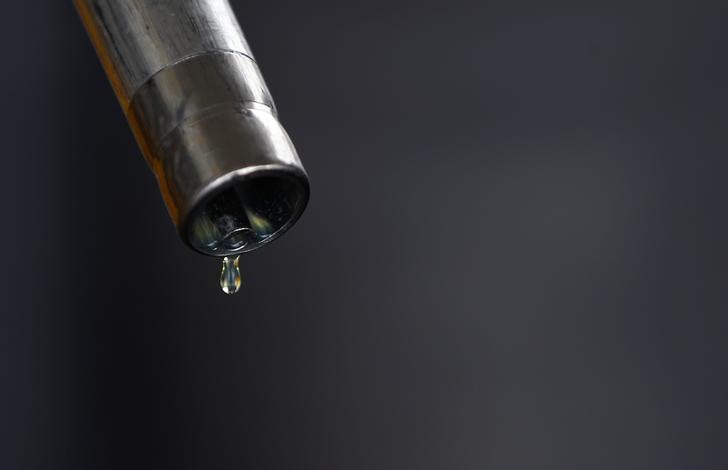SINGAPORE, Nov 4 (Reuters) - Oil prices edged up in early trading on Friday, stabilising after five straight days of falls triggered by a surge in U.S. crude inventories and doubts over the ability of oil producers to coordinate an output cuts.
International Brent crude oil futures LCOc1 were trading at $46.50 per barrel at 0036 GMT, up 15 cents, or 0.3 percent, from their last close.
U.S. West Texas Intermediate (WTI) futures were at $44.83, up 17 cents, or 0.4 percent.
Despite the slight increases, traders said market sentiment was bearish. Brent futures fell for the past five straight trading sessions and is down about 13.5 percent since its most recent peak in mid-October.
Analysts said markets were also weighed down by traders pulling out money from crude futures ahead of the upcoming U.S. presidential elections, which are seen as a risk to global markets.
"I suspect the main drivers are that risk is being taken off the table ahead of next week's election and the continuance of long liquidation," said Jeffrey Halley, senior market analyst at OANDA brokerage in Singapore.
Beyond concerns ahead of the U.S. elections, traders said oil market fundamentals were also weak, with U.S. crude stocks surging, demand growth low, and doubts that the Organization of the Petroleum Exporting Countries (OPEC) and non-OPEC producer Russia can agree on a meaningful output cut later this month.
"Crude oil continued to sell off with new (U.S.) data raising concerns of an expanding surplus... Investors also continued to fret about OPEC failing to reach an agreement on production cuts," ANZ bank said on Friday.
U.S. crude oil stockpiles soared more than 14 million barrels last week, the largest weekly build since the U.S. Energy Department started keeping records in 1982, highlighting that a global fuel supply overhang is far from over. oil production remains near records and inventories are high, British bank Barclays (LON:BARC) said demand growth was timid.
"Q3 16 demand growth rate is less than one-third that of the same quarter last year," Barclays bank said in a note to clients, estimating last quarter's growth below 1 million barrels per day (bpd). It said consumption increases for the last quarter of the year would not be much higher, before averaging 1.3 million bpd in 2017.
